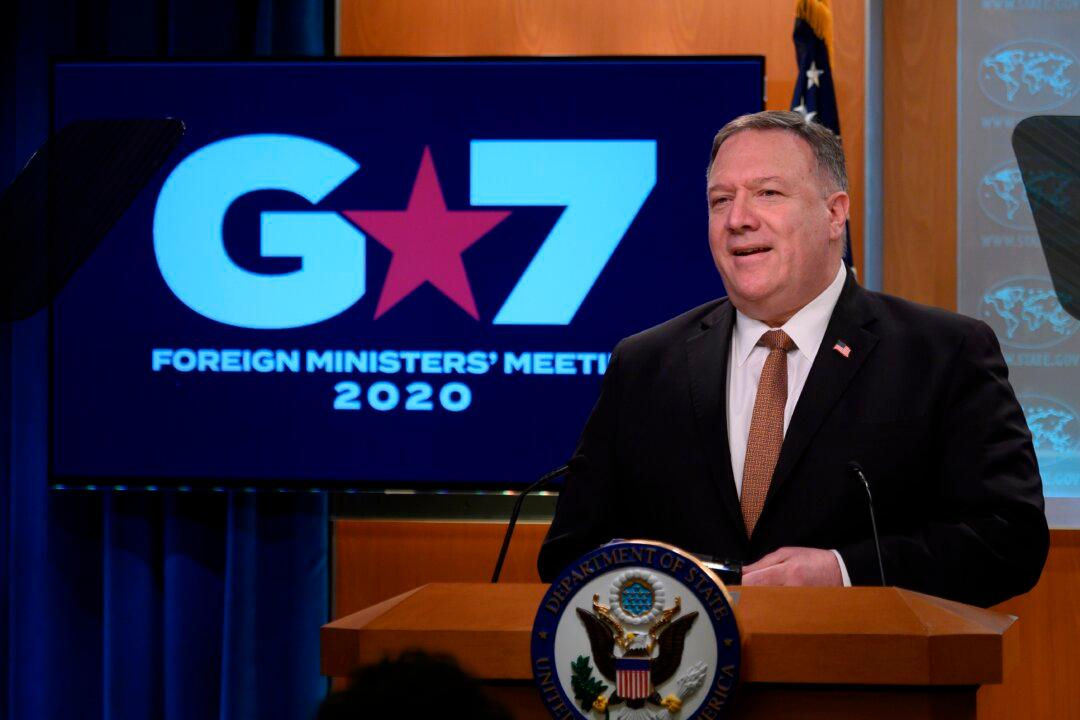The Group of Seven (G-7) economies have agreed to push back against Beijing’s sprawling propaganda campaign designed to deflect blame for causing the global pandemic, U.S. Secretary of State Mike Pompeo said on March 26.
G-7 countries discussed the Chinese regime’s “intentional disinformation campaign” during a virtual meeting held on March 25, according to Pompeo.





